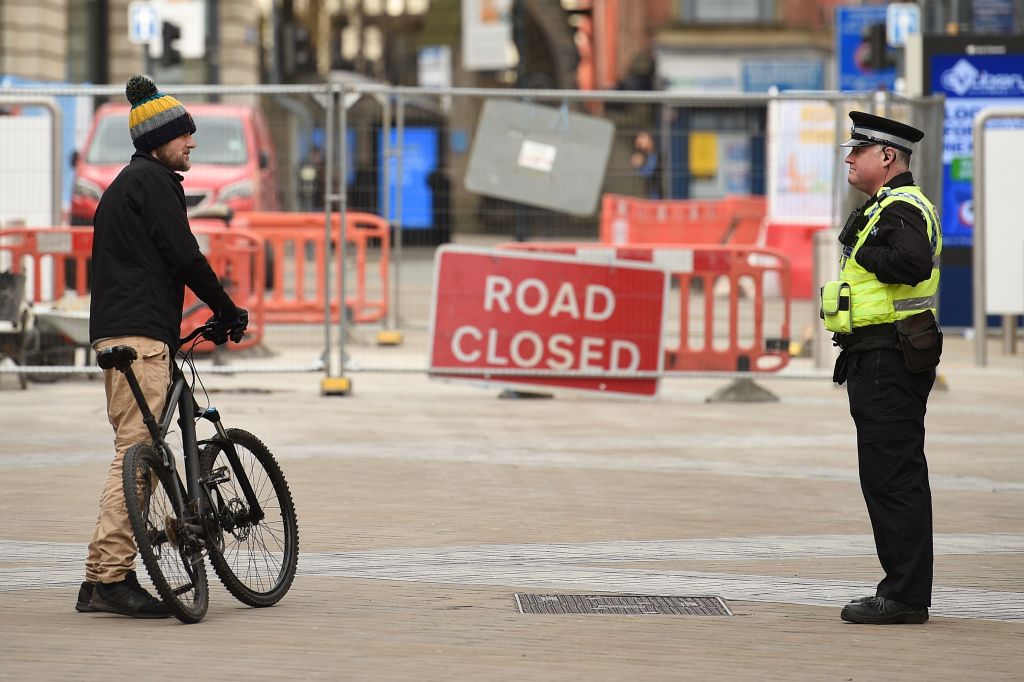A New Viral Infection: Leaders Seizing Power, Police Bullying Citizens

Mass surveillance is only ever in the news for two reasons—either because a whistleblower has exposed structural government overreach (as happened with Edward Snowden) or because nations are readying to fight a common threat. Over the past two decades, those threats have usually come either from migration or terrorism.
Yet COVID-19 is something different: a global pandemic. And it’s allowing governments to increase their surveillance states beyond what they would even typically do in a crisis. In Europe, currently paralyzed by the novel coronavirus, the European Union has dropped its new privacy standards completely. In a conference call with telecom executives, the EU’s commissioner for the internal market, Thierry Breton, demanded that mobile phone data be handed over in order to track the movement of the virus. As with other data collections, this is supposed to be anonymous—but that amounts to little once closely analyzed. It does not take much deductive ability to figure out that the phone moving in and out of your home belongs…to you.
In the UK, policy departments have used drones to track the personal movements of those taking walks in the countryside, which they’ve then publicized on Twitter for the purpose of shaming them. This video belongs in a Mission Impossible trailer, not a law enforcement tweet:
Despite posts yesterday highlighting issues of people still visiting the #PeakDistrict despite government guidance, the message is still not getting through. @DerPolDroneUnit have been out at beauty spots across the county, and this footage was captured at #CurbarEdge last night. pic.twitter.com/soxWvMl0ls
— Derbyshire Police (@DerbysPolice) March 26, 2020
In Italy, mayors are publicly berating their own citizens for going on jogs by themselves, while in Belgium, law enforcement is harassing people outside of supermarkets for not buying “essential” goods. One lady who bought a few Coke bottles was humiliated by a policeman, who demanded, “Are you preparing for diarrhea or what? Go, get your papers.” Another man (towards the end of the video) can be seen getting shoved around just for having too few items in his shopping cart.
A journalist in Taiwan testified to the direct effects of heightened personal tracking in a chilling Twitter testimony: “My phone, which is satellite-tracked by the Taiwan gov to enforce quarantine, ran out of battery at 7:30 AM. By 8:15, four different units called me. By 8:20, the police were knocking at my door.”
All over Asia, authorities are using tools ranging from Bluetooth-based contact tracing apps to smartphone-linked wristbands to credit card records to even CCTV cameras installed outside people’s homes.
This war on privacy will soon start crossing borders. Google and Facebook want to share location data with governments, including the American administration. This is likely a breach of user agreements; it’s also likely to be unconstitutional were the American government to do it. Not that that would be news anyway, since the Senate used the coronavirus as cover to pass a 77-day extension of FISA surveillance.
No matter what legitimacy we want to ascribe to these emergency measures, we ought to recognize that they usually outlast emergencies. After 9/11, governments around the world introduced emergency measures to tackle terrorism; 20 years later, the wars still haven’t ended and the surveillance has been institutionalized. Following the 2008 financial crisis, governments introduced emergency measures to save the economy; 12 years later, corporate bailouts are established and accepted like never before. Following terrorist attacks in Europe in 2015, governments introduced emergency measures to reduce the harm done to citizens; five years later, most of them are still allowing house searches without warrants and deploying militarized police forces.
Under the guise of fighting terrorism, governments have eroded civil liberties. And because there will always be a terrorist organization to fight, chances are we will never return to how it was before. If they hated us for our freedom, it should only be a mild dislike by now.
Emergency rules are easily implemented, yet awfully hard to get rid of. This is particularly true if the threat has no expiration date. Viruses tend to be similar, as the coronavirus has the ability to reappear in different forms. Those arguing that we need to keep emergency measures “as long as necessary” will soon find that the definition of “necessary” is made by those interested in yielding as little power as possible.
There are more reasons to oppose the surveillance state than just its unconstitutionality. Surveillance leads to self-censorship and provides the government with the ability to establish authoritarian rule. It’s been fascinating to watch those who love to call their political opponents “fascist” suddenly grow comfortable with giving government everything it needs for potentially authoritarian tools.
If we do not realize that the virus isn’t the only real and endemic threat, we do so at our expense.
Bill Wirtz comments on European politics and policy in English, French, and German. His work has appeared in Newsweek, the Washington Examiner, CityAM, Le Monde, Le Figaro, and Die Welt.